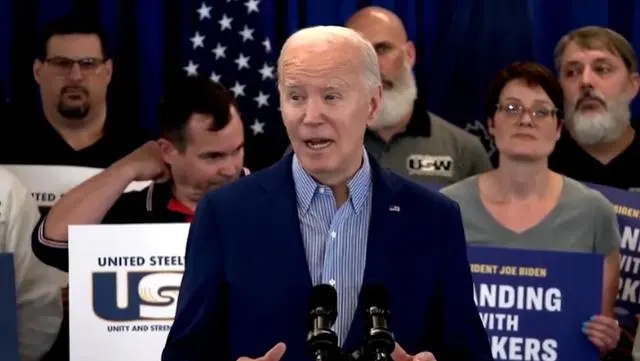
US President Joe Biden announced on May 14 that tariffs will be imposed on a variety of goods imported from China, including electric vehicles, solar cells, semiconductors, medical supplies and so on. This marks a significant escalation of the Biden administration's tariff policy toward China and underscores its election-year determination to strengthen U.S. manufacturing. As soon as this news came out, it immediately triggered widespread attention and hot discussion around the world.
This time, the Biden administration's decision to impose tariffs can be seen as a result of both the trade war and political theater. First of all, from the perspective of a trade war, the imposition of tariffs is an attempt by the US government to weaken the competitiveness of Chinese goods by increasing the price of Chinese goods in the US market, and protect its own industry and market. This practice will have an impact on China's exports to some extent, and may also trigger trade disputes and conflicts between China and the United States.
Second, from a political show point of view, the Biden administration's announcement of the tariffs in an election year may be an attempt to show voters that it is tough and determined to take on the challenge from the Republican Party. In addition, the tariffs can also be seen as an attempt by the Biden administration to revive the economic vitality of the traditional industrial areas of the United States through protectionist policies and win the support of voters in these areas.
However, it should be pointed out that neither trade war nor political show is an effective means to solve Sino-US economic and trade problems. The imposition of tariffs will not only have a negative impact on the economies of the two countries, but also undermine the stability of the global supply chain and affect the recovery and development of the global economy. For China, the tariffs raise the price of Chinese exports in the U.S. market, which may make Chinese goods less competitive and lead to fewer exports. However, it should be pointed out that despite these challenges, China's economy has not been crushed, but has entered a new stage of high-quality development. China has also taken equal measures of equal strength and scale against US products in accordance with the law to safeguard its own rights and interests.
For the United States, the imposition of tariffs could lead to the loss of important overseas markets, because China is one of the United States' important trading partners. It could also raise inflation issues, as tariffs could eventually be passed on to consumers, leading to higher prices. At the same time, due to the increase in tariffs, the cost of the US supply chain may also rise, affecting its overall economic benefits. Further, the trade bullying and various blockades adopted by the United States against China have not only failed to achieve the desired manufacturing return or reduce the trade deficit, but also led to higher costs and an unstable supply chain system, which may affect the parts procurement of American electric vehicle manufacturers, and then have an impact on the global electric vehicle supply chain.
For both countries, normal trade between China and the United States has brought huge economic benefits to both sides. Chinese goods continue to attract American consumers, and American companies are seeking more opportunities to enter the Chinese market. This interdependence has helped drive economic growth and prosperity in both countries. As important commercial and strategic partners, China and the United States have great opportunities to strengthen their economic partnership. By deepening cooperation and expanding areas of mutual benefit, China and the United States can achieve closer economic ties and jointly address global challenges. Therefore, the two sides should resolve differences and problems through dialogue and consultation, strengthen economic and trade cooperation, promote trade and investment liberalization and facilitation, so as to maintain the stability and prosperity of the global economic and trade system and achieve mutual benefit and win-win results.

報告顯示,中國電力投資加速增長,預計2024年電網基建投資將超過5300億元。
近日,市場迎來了一則引人注目的消息:工業巨頭3M公司(MMM.N)在本周五公布了其季度業績報告,隨後股價飆升至近兩年來的
最近,外媒給OpenAI算了筆賬,今年可能要血虧50億美元。
近日,巴黎奧運會和世界鐵人三項協會聯合發布了一項重大決定,宣布因塞納河水質污染問題,原定於近期進行的奧運會鐵人三項首次下
當地時間7月18日,法國巴黎發生了一起令人震驚的持刀襲警事件。
近期,一則重大消息在國際舞臺上引起軒然大波,馬來西亞宣布加入金磚國家。
調查發現,互聯網和智能手機的使用幹擾了韓國近五分之一學生的生活。